 W
WElia Maria González-Álvarez y López-Chicheri, also known as Lilí Álvarez, was a Spanish multi-sport competitor, an international tennis champion, an author, feminist and a journalist.
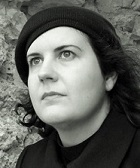 W
WNúria Añó is a Catalan writer, a translator, and a speaker at conferences and symposia, where she gives papers on literary creation or authors like Elfriede Jelinek, Patricia Highsmith, Salka Viertel, Franz Werfel, Karen Blixen or Alexandre Dumas, fils.
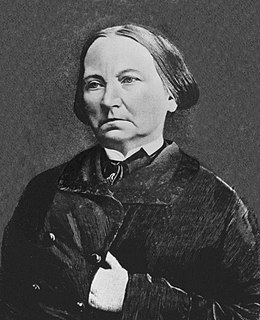 W
WConcepción Arenal Ponte was a graduate in law, thinker, journalist, poet and Spanish dramatic author within the literary Realism and pioneer in Spanish feminism. Born in Ferrol, Galicia, she excelled in literature and was the first woman to attend university in Spain. She was also a pioneer and founder of the feminist movement in Spain.
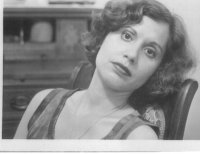 W
WMaría Arrillaga is a Puerto Rican poet who has been a professor at the University of Puerto Rico. She taught in the Spanish Department on the Rio Piedras campus. She is a member of PEN American Center as well as PEN Club de Puerto Rico. She was a member of the Women's Writing Committee of PEN International, served as its secretary and organizer for Latin America. Arrillaga was president of PEN Club de Puerto Rico during 1989–1991.
 W
WNerea Barjola is a Spanish social scientist and feminist activist. She is known for analysing the media coverage of the Alcàsser Case as a reaction to feminist activity in Spain in early 1990s, arguing that it responded to recent gains of the feminist movement by portraying them as inherently connected to violence against women.
 W
WMiriam Beizana Vigo is a Spanish writer and literary critic.
 W
WSara Berenguer Laosa was a Spanish Catalan militant anarcho-syndicalist, anarcha-feminist, and writer active in the Mujeres Libres movement.
 W
WCarmen Blanco is a Spanish feminist writer and activist. She is Professor of Galician Literature at the University of Santiago de Compostela. With Claudio Rodriguez Fer she coordinates the intercultural and libertarian journal Unión Libre. Cadernos de vida e culturas and the Asociación para a Dignificación das Vítimas do Fascismo.
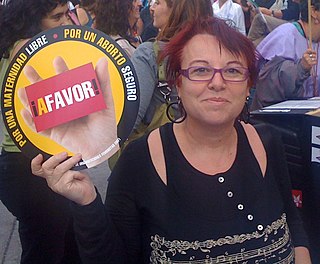 W
WMontserrat Boix Piqué is a Spanish journalist, considered among the most influential women in her country. In early 2000, she created and developed the concepts of social cyberfeminism, and a year later those of feminist hacktivism. Another of her main areas of work is gender violence and communication. She has also stood out as a defender of the right to communication and citizenship rights for women. Since 1986, she has been a journalist for the Information Services of Televisión Española (TVE), in the international section.
 W
WCarmen de Burgos y Seguí was a Spanish journalist, writer, translator and women's rights activist. Johnson describes her as a "modern" if not "modernist" writer.
 W
WMaría Cambrils Sendra was a Spanish writer and feminist. She was self-taught and became part of the working class intellectual elite as a writer and lecturer. She published numerous articles in the workers' press, especially El Socialista. She is the author of the 1925 book Feminismo socialista, a reference on women's rights and feminist and socialist action.
 W
WAnna Freixas Farré is a Spanish feminist writer and retired university professor.
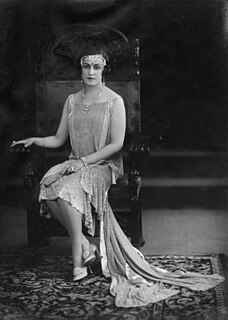 W
WMaría Laffitte y Pérez del Pulgar, Countess of Campo Alange was a Spanish aristocrat, writer, art critic, women's rights activist, and founder of the Seminar on Women's Sociological Studies.
 W
WLucía Lijtmaer Paskvan is a journalist and writer born in Argentina and raised in Barcelona, where her parents went into exile. She is a specialist in pop culture from a gender perspective. She is also cultural curator, literary translator, and university professor. She currently writes for various media, including El País, El Diario, and Carne cruda.
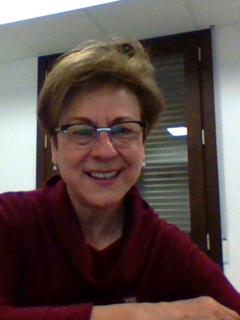 W
WCándida Martínez López is a Spanish historian, university professor, expert in women's history and studies, and politician. From 2000 to 2008 she was Councilor of Education of the Regional Government of Andalusia, and from 2008 to 2011 a deputy of the 9th Legislature of Spain. She is co-director of Arenal, Journal of Women's History.
 W
WMontserrat Minobis i Puntonet was a Spanish feminist journalist.
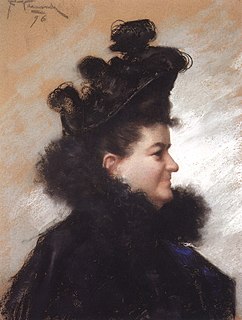 W
WEmilia Pardo Bazán y de la Rúa-Figueroa, countess of Pardo Bazán, was a Spanish novelist, journalist, literary critic, poet, playwright, translator, editor and professor. She is known for introducing naturalism into Spanish literature, for her detailed descriptions of reality, and for her ground-breaking introduction of feminist ideas into the literature of her era. Her ideas about women's rights for education also made her a prominent feminist figure.
 W
WAmaia Pérez Orozco is a Spanish economist and feminist activist. She specializes in feminist economics and the economic theory of sustainable living.
 W
WBlanca de los Ríos Nostench was a Spanish writer and painter.
María Presentación Salas Larrazábal, also known as Mary Salas, was a Spanish writer and journalist who specialized in adult education and was a pioneer of women's laity. She was linked to Catholic Action and was the first president of the NGO Manos Unidas. A key figure in the struggle for equality, in 1960 she co-founded the Seminar on Women's Sociological Studies, the precursor of modern gender studies in Spain, and in 1986 promoted the Women's Studies Forum that she chaired.
 W
WLucía Sánchez Saornil, was a Spanish poet, militant anarchist and feminist. She is best known as one of the founders of Mujeres Libres and served in the Confederación Nacional del Trabajo (CNT) and Solidaridad Internacional Antifascista (SIA).
 W
WClara Irma Serra Sánchez is a Spanish politician and feminist author. She was a member of the Assembly of Madrid between 2015 and 2019, during the 10th and 11th terms of the regional legislature.
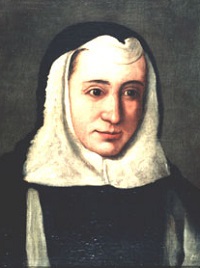 W
WTeresa de Cartagena was a Spanish writer, mystic and nun who is considered to be the first Spanish female writer and mystic. She became deaf between 1453 and 1459. Her experience of deafness influenced her two known works Arboleda de los enfermos and Admiraçión operum Dey. The latter work represents what many critics consider as the first feminist tract written by a Spanish woman.
 W
WAmelia Valcarcel is a Spanish philosopher and feminist. She is considered within the “philosophic feminism” as part of the “equality feminism” approach. In 2015 she is a professor in Moral and Political Philosophy at the National University of Distance Education and since 2006 is member of the Spanish Council of State.
 W
WMaría de Zayas y Sotomayor wrote during Spain's Golden Age of literature. She is considered by a number of modern critics as one of the pioneers of modern literary feminism, while others consider her simply a well-accomplished baroque author. The female characters in de Zayas's stories were used as vehicles to enlighten readers about the plight of women in Spanish society, or to instruct them in proper ways to live their lives.